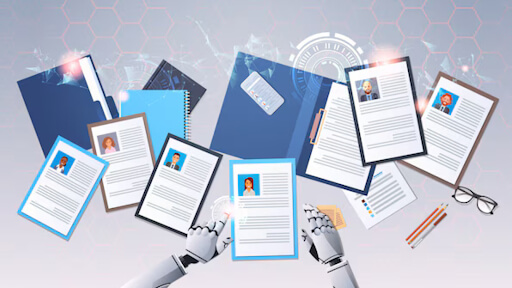 1-800-805-5783
1-800-805-5783 
A sub-discipline of the Generative AI movement is the creation of new content. Lawyers can now use advanced algorithms and machine learning to automate everyday tasks and improve decision-making processes (and, thus, the quality of services).
The global legal tech market was valued at $27.1 billion in 2022 and is expected to grow to $44 billion by 2028, driven by advancements in AI and automation technologies.
What is LegalTech?
LegalTech is the portmanteau of “legal” and “technology.” This would include everything from legal software to artificial intelligence in the age of the legal industry that looks at work amidst such developments, heightening efficiency and costs while raising the bar on the quality of services delivered in a legal context.
Why could Generative AI be a game-changer for the legal tech industry?
Automation of routine tasks: Because AI can automate routine tasks such as contract review, document analysis, or legal research, lawyers can focus on more complex and strategic work.
LegalTech Research Improvement: AI can scan any amount of data and understand its relevance to case law, thereby giving the lawyer a better insight into how to build a stronger case.
This improves lawyers’ decision-making capability because AI algorithms can analyze data to find patterns and trends that point to possible dangers.
Client Satisfaction: AI-based chatbots and virtual assistants provide fast and accurate legal tech advice, ensuring improved client satisfaction. If the legal profession embraced generative AI, increased efficiency, and provided better-quality services to its clients, that would unlock new opportunities.

Generative Adversarial Networks
GANs are a compelling technique to generate realistic and diverse data. In the context of LegalTech, GANs are used for the following critical applications:
Recurrent Neural Networks (RNNs)
Transformers
Transformers are a new class of robust architectures for neural networks that have revolutionized natural language processing. It can be used in LegalTech for:
These methods demonstrate how generative AI can significantly increase the accuracy and efficiency of legal procedures, allowing legal professionals to make the most appropriate decisions and provide their clients with better services.

It is one of the smarter subsets of AI channeled into creating new things that change the character of the legal tech industry. Generating attorneys works efficiently by automating routine tasks while providing insightful value.
A 2022 survey by Gartner revealed that 20% of corporate legal departments have already implemented AI tools for document review and legal tech research, with another 40% planning to adopt AI by 2025.
Document Review and Analysis
Reviewing and analyzing documents is one of the most essential uses of generative AI in legal technology.
Contract Drafting and Negotiation
Generative AI can also be helpful in drafting and negotiation of contracts:
LegalTech Research and Analysis
Generative AI can significantly enhance legal tech research and analysis:
The AI will summarize long or complex legal tech documents to make the document’s contents understandable for lawyers.
The most significant aspect to consider is patterns and trends in large databases of legal documents that AI can figure out, which are valuable in contributing to a better understanding of legal tech decision-making.
The facts gathered from the case history can be used to foresee legal tech outcomes, giving lawyers a precise perception of the probability of a positive outcome. This will imply that generative AI transforms the legal tech business from automating routine, mundane work to gaining valuable insights.
As technology advances further, applications in legal tech will continue to grow, leading to efficiency, accuracy, and efficiency over cost.

Emerging Trends and Applications
The future potential that generative AI holds for LegalTech is immense. Some emerging trends and applications include:
Enhanced contract analysis:
Advanced Legal Research:
AI-Powered Assistants in the Legal Profession:
The Impact on Legal Experts
The integration of generative AI into LegalTech will significantly impact the role of legal tech professionals:
Legal Services Using AI: Ethical Issues.
With the growing popularity of generative AI, it’s time to reflect on the ethical aspects of AI-powered legal tech services in general. Why?
Ethical considerations regarding using AI in legal services must be developed to overcome these risks. Careful consideration must also be given to developing proactive steps to face moral challenges: generative AI must be used for the good of society.

Legal Generative AI will disrupt this industry by automating routine tasks, increasing efficiency, and making better decisions. LegalTech professionals can work on high-value endeavors like strategic thinking and counseling clients.
With the progress made by generative AI, even more innovative applications will rise in the legal field. From contract review to predicting legal analytics, AI-powered tools will revolutionize how legal tech services are delivered.
Only by accepting this technology and furthering research and development will legal tech professionals be able to fully utilize the possibilities of generative AI.
LegalTech professionals will only maintain their position if they are up-to-date with innovations and use the most recent tools that infuse AI. For a rapid future of LegalTech, embracing the power of AI is imperative for creating new routes to the future, not just merely becoming faster and more efficient.
What is Generative AI?
Generative AI is artificial intelligence that can create new content, such as text, images, and code. It uses advanced techniques like neural networks to learn patterns from existing data and generate new, original content.
How can generative AI be used in legal tech?
Generative AI can automate tasks like contract review, due diligence, and legal research and generate legal documents such as contracts and briefs.
What are the benefits of using Generative AI in LegalTech?
Generative AI can improve efficiency, reduce costs, and enhance the accuracy of legal work. It can also help lawyers to focus on more complex and strategic tasks.
What are the challenges of using Generative AI in LegalTech?
Some challenges of using generative AI in legal tech include the need for high-quality training data, the risk of bias in AI models, and the ethical implications of using AI to make legal decisions.
[x]cube has been AInative from the beginning, and we’ve been working with various versions of AI tech for over a decade. For example, we’ve been working with Bert and GPT’s developer interface even before the public release of ChatGPT.
One of our initiatives has significantly improved the OCR scan rate for a complex extraction project. We’ve also been using Gen AI for projects ranging from object recognition to prediction improvement and chat-based interfaces.
Interested in transforming your business with generative AI? Talk to our experts over a FREE consultation today!